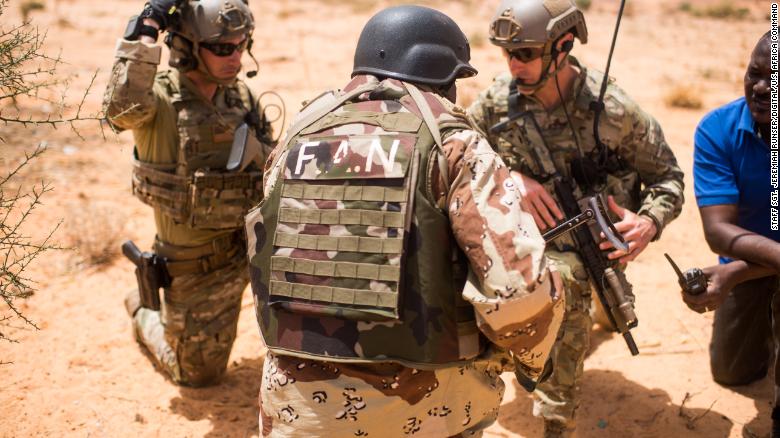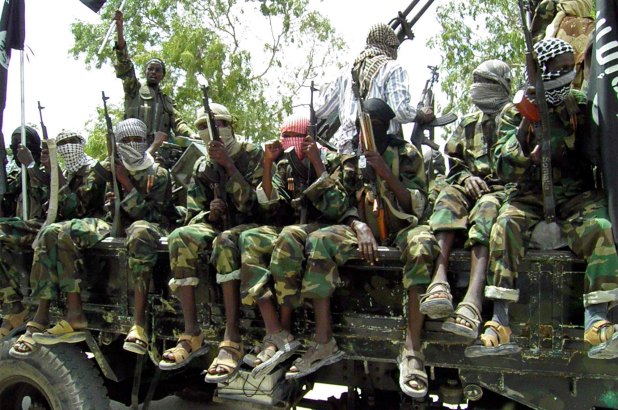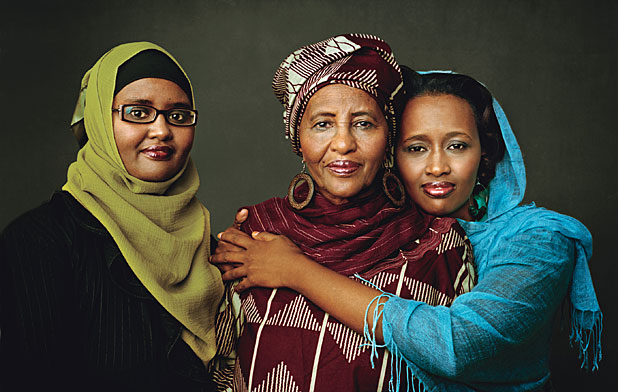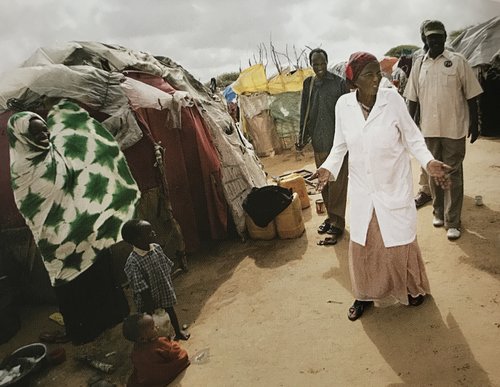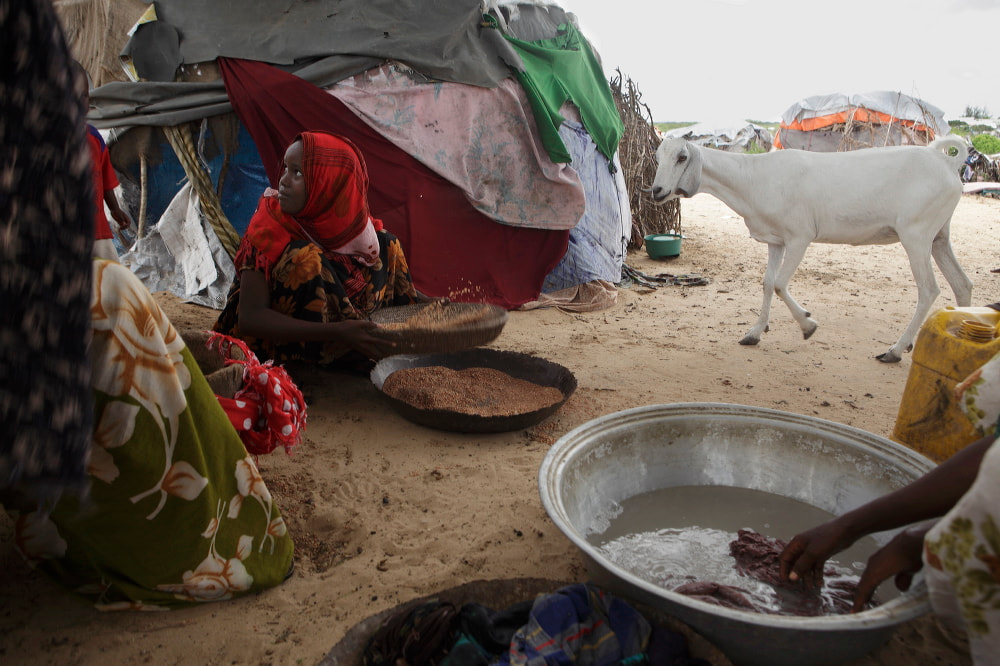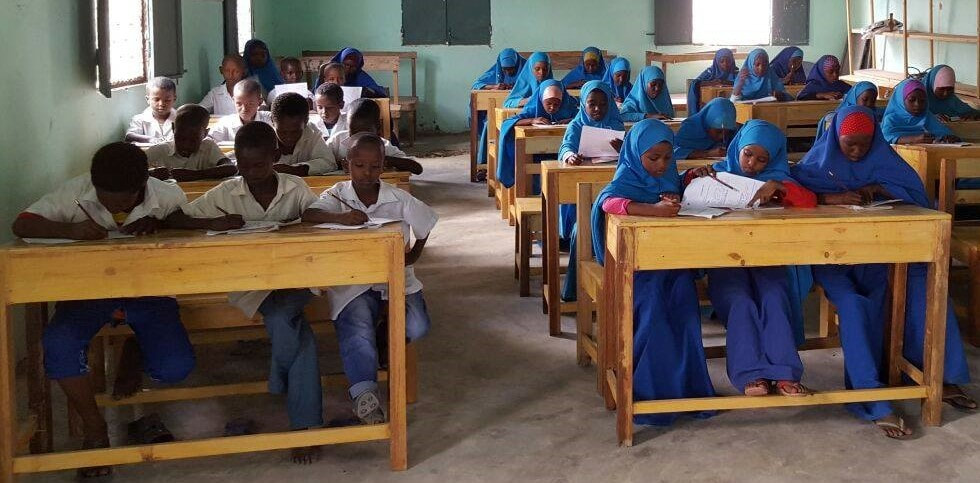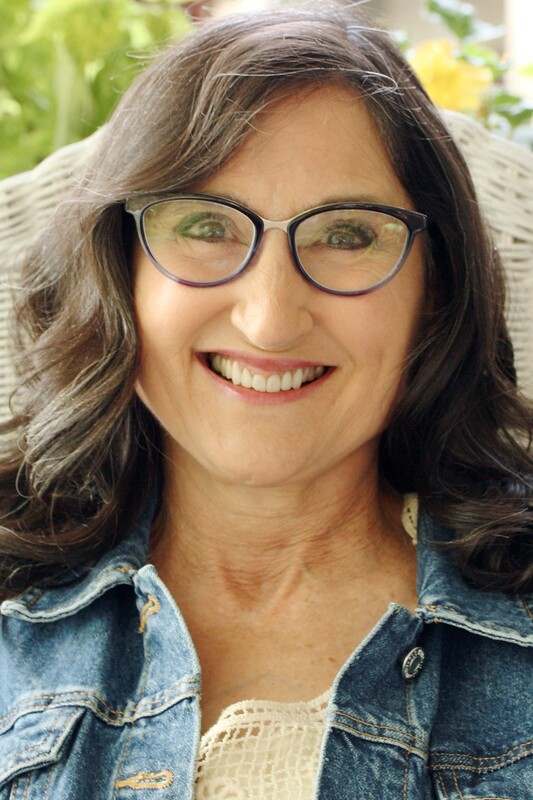|
Did you know the Trump Administration is escalating our war in Somalia? I must admit, I didn't know we had a war in Somalia. It's part of the War on Terrorism, and it shakes out to at least 500 troops on the ground in Somalia, and increasing numbers of air strikes over the the last two months. The attacks killed 225 people in January and February, according to the New York Times, compared to 326 in all of 2018. Of course, these air strikes are targeting bad guys, al Qaeda Shabaab insurgents, and supporting good guys, the U.N.-backed Somalian government troops. Shortly after President Trump took office, he declared Somalia an “area of active hostilities” subject to war-zone rules. This designation allows the U.S. military to readily attack Shabab militants, including foot soldiers with no special skills or role, and it permits the killing of civilian bystanders. Four people died in a U.S. assault March 10th, 2019, according to a relative of one of the victims. The relative told Reuters one of those killed was an employee of the firm Hormuud Telecom. The U.S. Africa Command acknowledged it carried out the air strike on Sunday, saying that three militants had died in the attack, as well as three separate attacks in a five-day stretch of February killing 35, 20 and 26 people. More on the war in Somalia here. The Shabab have proved resilient against the American airstrikes, and continue to carry out regular bombings in East Africa, and the stepped-up attacks are exacerbating the humanitarian crisis in Somalia. Why all the bad news? Why all this bad news? Just setting the stage for this feature story. In the midst of decades of violence, drought and famine in Somalia, there's one woman who's been making enemies peaceful, feeding the hungry and standing up to al Qaeda like a one woman army. Her name is Dr. Hawa Abdi, the saint Rambo comparison came from Glamour Magazine, when it named Dr. Abdi Woman of the Year in 2010, along with her two daughters, also doctors in Somalia. 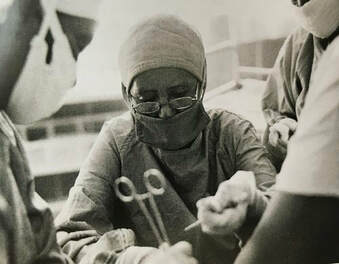 In the refugee camp where Dr. Abdi convinced enemies to lay down their grudges, she called simply "Mama Hawa". "They are very angry and mentally not [there] when they are coming to you," Abdi she told NPR. "Their parents or their brothers, their wives, their fathers were killed in front of them. They're coming to me. There is no government. The whole society became violent." Dr. Abdi became one of Somalia's first female gynecologists in 1971, after medical school in the Soviet Ukraine. She worked in Mogadishu’s largest hospital until 1983, when she left, deciding she wanted to provide free medical care to dirt-poor women who would never be able to afford having a baby in a hospital. "I decided to open my own clinic next to our family’s home in a rural area, 15 miles from the capital. Within a few months, I was seeing 100 patients a day." When the country exploded in civil war in 1991 and the Somalian government collapsed, Dr. Abdi's clinic and her home turned into a triage center. Hundreds, than thousands of people, mostly women and children, settled in temporary shelter in the doctor's family's ancestral lands surrounding the clinic. Dr. Abdi sold her family’s gold to buy food to keep the children alive and give adults the strength to dig graves. We clung to one another and we survived, but the fighting continued," said Dr. Abdi. 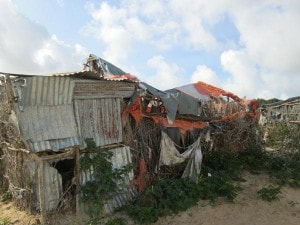 For the following two decades, destruction, violence, drought and famine ravaged her homeland and Dr. Abdi raised her own children while providing a safe haven for refugees. Her one-room clinic became a 400 bed hospital, and her thousand-acre farm a displaced person camp. She worked 12-hour days, 7 days a week, delivering babies, treating gunshot wounds, and providing IV lines of nourishment to starving children. By 2010, With help from the U.N. "Hawa's Camp" was providing food, clean water, and shelter to 90,000 refugees. Dr. Abdi had two strict rules to preserve the peace. First, no one is allowed to talk about clan or family, the most divisive issue in Somalia. Second, men are not allowed to beat their wives. Though conditions have improved in the camp, Somalia remains wracked by war and over the years local warlords tried to shut her operation down at gunpoint They've blocked aid, raided her camp with machine guns, and threatened her life several times. In May 2010 Islamist militants arrived at the gate, demanding Dr. Abdi turn over management of the hospital and camp to them, as women are not allowed to hold positions of power under their brand of Islam. She invited them to sit down to dinner. After eating, "Six Hizbul Islam soldiers, jittery, aggressive young men with -henna-dyed beards, wearing red-and-white checkered scarves, their index fingers forever on the triggers of their guns," ordered her to leave. Elders in the camp warned her she'd be shot, but Dr. Abdi stood up to the militants. "At least I will die with dignity," she said. "They did not shoot me; they pushed back their chairs and left." A week later they were back, 750-strong. This time they fired on the hospital and camp. "A BBC producer called me during some of the heaviest shelling," said Dr. Abdi. "I told him that the militiamen’s targets were the maternity and surgical wards, and the pediatric malnutrition section. One woman recovering from a C-section I’d performed earlier that day had stood up to run. "Terrified mothers detached feeding tubes and IV lines from their dehydrated children’s noses and arms to flee into the woods, away from the indiscriminate shooting. A group of militiamen stormed into my room. 'You’ve spoken to the radio, haven’t you?' shouted one." The armed men demanded her cellphone and and hauled Dr. Abdi and six nurses away, holding them hostage for ten hours. Then the gunmen returned her phone, saying. “You have many supporters,” and ordering her to call people to say she was alive and unharmed. The following day armed men appear to tell her not to re-open the hospital. She said she would not reopen without a written apology. “Dr. Hawa, you are stubborn,” one told her. “I do something for my people and my country,” she said. “What have you done for your people and your country?” A week later their second-in-command returned with a written apology. In 2012, Dr. Abdi was nominated for the Nobel Peace Prize. Today 850 young people attend school in the camp, and Mama Hawa insists that equal numbers of boys and girls go to school. Dr. Adbi now, in her early 70s, runs a foundation to raise money for operations, while the camp and hospital are run by her daughter, Deqo Mohamed, who also became a doctor. It's mission is to secure basic human rights in Somalia through building sustainable institutions in healthcare, education, agriculture, and social entrepreneurship. Sources: https://www.dhaf.org/our-story https://www.nytimes.com/2019/03/10/us/politics/us-somalia-airstrikes-shabab.html?module=inline http://www.asafeworldforwomen.org/womens-rights/wr-africa/wr-somalia/1039-dr-hawa-abdi-under-siege-in-somalia.html |
I'm fascinated to discover little-known history, stories of people and events that provide a new perspective on why and how things happened, new voices that haven't been heard, insight into how the past brought us here today, and how it might guide us to a better future.
I also post here about my books and feature other authors and their books on compelling and important historical topics. Occasionally, I share what makes me happy, pictures of my garden, recipes I've made, events I've attended, people I've met. I'm always happy to hear from readers in the blog comments, by email or social media. Archives
September 2023
Categories
All
|
